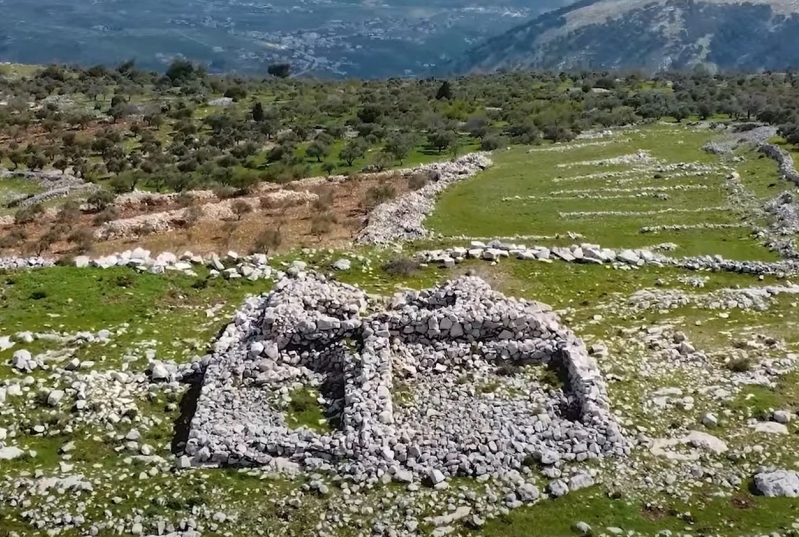
As the Israel-Hamas war continues, a historical site in the West Bank that is widely esteemed by Jews and Christians has been vandalized by a group of Palestinian protesters.
Known as Joshua's Altar and located on Mount Ebal, the sight was damaged last week by Palestinian protesters, who burned tires on the site's remains and spraypainted Palestinian flags and Arabic inscriptions onto its stone pieces, reports The Jerusalem Post.
Joshua's Altar has suffered other attacks in the last couple years amid a larger trend of orchestrated attacks on Israeli heritage sites.
"Unfortunately, Jewish and Christian holy places are repeatedly targeted by Muslim settlers, such as the Tomb of Rachel near Bethlehem, the Tombs of Abraham, Isaac and Jacob, Sarah, Lea, and Rebecca in Hebron, the Tomb of Josef in Shechem (Nablus) and many others," the Rev. Petra Heldt, a leading Christian scholar who has resided in Israel for 40 years, told Fox News Digital.
"It is a consistent pattern that shows that there is a wish to eliminate the existence of Jewish and Christian history in Eretz Israel, the historic land of the Jewish people. Therefore, this holy place must be secured, like other holy places in Israel, from Palestinian vandalism."
Heldt believes it is "immediately necessary that the site should get proper protection from such vandalism."
"The altar goes back to the time of Joshua (1400 BC) who led the Jewish people from exile into the Promised Land," Heldt continued. "A permanent Jewish presence established on and around Mount Ebal will permanently secure that holy place for Jews and Christians."
Israeli activists with the Forum for the Struggle for Every Dunam have also called for a Jewish presence at the ancient historical site.
"Today, it is clearer than ever that only the fixed Jewish presence of a farm or town will guarantee there is really control over the site and prevent further damage or destruction of the altar," they stated, as reported by the Tazpit Press Service.
The Israel-Hamas war began on Oct. 7 following a surprise attack by Hamas, a terror group that has controlled the Gaza Strip since 2007, on southern Israel that killed over 1,200, mostly civilians. Israel launched an offensive in Gaza with the aim of eradicating Hamas and securing the release of over 240 hostages who were kidnapped by Hamas.
Since the start of the war, the Hamas-run Gaza Health Ministry states that over 20,000 people have been killed in Gaza. The Hamas death toll numbers don't distinguish between combatants and civilians and don't distinguish people killed by Israel Defense Forces and those killed by Hamas or other Palestinian groups.
Since the start of the war, Jewish heritage sites and Holocaust monuments across the world have been vandalized.
In early November, the European Union condemned what it called a "spike of antisemitic incidents across Europe [which] has reached extraordinary levels in the last few days, reminiscent of some of the darkest times in history."
"We have seen a resurgence of antisemitic incidents and rhetoric in the European Union and worldwide: Molotov cocktails thrown on a synagogue in Germany, stars of David sprayed on residential buildings in France, a Jewish cemetery desecrated in Austria, Jewish stores and synagogues attacked in Spain, demonstrators chanting hate slogans against Jews," a Nov. 5 statement from the European Commission reads.
In late October, the European Association for the Preservation and Promotion of Jewish Culture and Heritage issued a statement condemning acts of vandalism that targeted Jewish heritage sites. Vandalism occurred at a historic synagogue in Izmir, Turkey, and the medieval synagogue and Jewish quarter of Besalú in Spain.
"AEPJ condemns these senseless acts of vandalism in the strongest terms," the AEPJ statement reads. "Such actions not only harm the local communities but also inflict severe damage on the national and international historical and artistic heritage. These historic sites serve as a crucial link to Europe's diverse cultural tapestry, and their preservation is essential for promoting understanding and dialogue."
Originally published by The Christian Post





